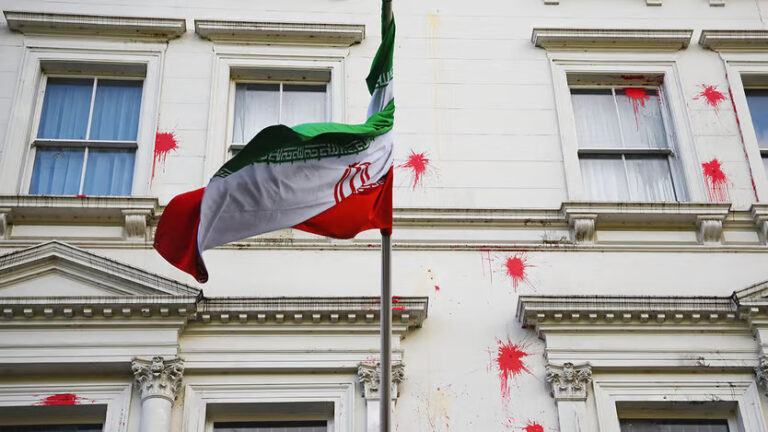Al Arabiya with Agencies
The United States could let Iran partially enrich uranium in return for strict measures to curb its ability to build a 
nuclear bomb, the Los Angeles Times reported Friday. In what would be a major concession, Washington could agree to allow Tehran to enrich uranium up to five percent purity if the Islamic Republic agrees to unrestricted inspections of its nuclear sites and other conditions, the newspaper said, citing U.S. officials. Tehran would also be required to agree to strict oversight and safeguards that the United Nations has long demanded. Approving any level of enrichment has been a subject of much controversy within the US government and among its allies. U.S. officials did not immediately confirm the report.
At present Iran has some 6,600 pounds (3,000 kilograms) of low-enriched uranium of 3.5-percent purity, but of greater concern is the country’s rapidly expanding capacity to enrich to 20 percent at its virtually impregnable Fordo site.
Western powers fear that if Iran were to take the decision to develop the bomb, it could relatively quickly reconfigure Fordo’s centrifuges to enrich to weapons-grade levels of 90 percent.
But the Times said a consensus has gradually emerged that the Iranians are unlikely to accept a complete halt to enrichment, and that the issue could prevent a negotiated deal to stop Iran’s program short of a military attack.
Earlier this month, Iranian Foreign Minister Ali Akbar Salehi said that Iran will not give up its right to enrich uranium, but hinted that the level of enrichment is open to discussion.
The international community, particularly Iran’s arch-nemesis Israel, is concerned about Tehran’s growing capacity to enrich uranium, which can be used for peaceful purposes but also, when purified further, for a nuclear weapon.
Salehi’s comments came on the heels of talks in Istanbul between Iran and the so-called P5+1 group of world powers ̶ U.N. Security Council permanent members Britain, China, France, Russia and the United States plus Germany ̶ the first in 15 months.
Tehran and the world powers agreed to hold a more in-depth meeting in Baghdad on May 23.
The U.N. Security Council has imposed four rounds of sanctions on Iran due to suspicions that its avowed civilian nuclear program is a cover for a secret atomic weapons drive, a charge Iran vigorously denies.
Israel warns of nuclear arm race
In related news, Israel’s defense minister has said the world must prepare to “swiftly and firmly” stop Tehran from acquiring atomic weapons and setting off a regional nuclear arms race.
In a thinly veiled reference to a military strike, Ehud Barak acknowledged that such an operation would be “complex, risky and unpredictable.”
He warned that a nuclear Iran “would be far more complex, dangerous and immeasurably more costly,” both in terms of human lives and financially.
At the Israeli Defense Ministry’s annual Independence Day reception late Thursday, Barak warned that “Saudi Arabia, Turkey and even Egypt would be forced to join the race.”
He also predicted a nuclear Iran would “assertively” back anti-Israel militants in “sowing terror in the region and throughout the world.”







+ There are no comments
Add yours